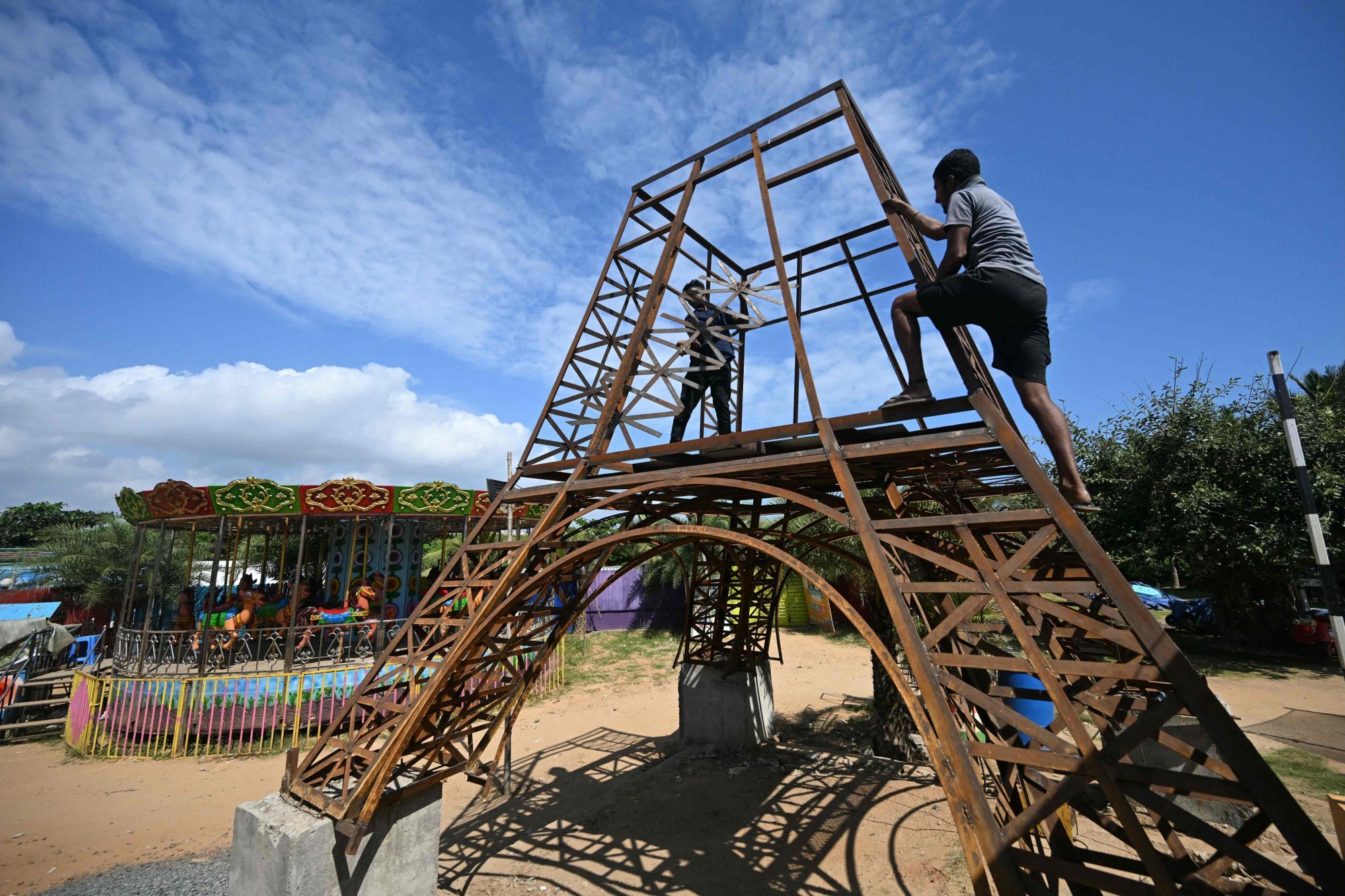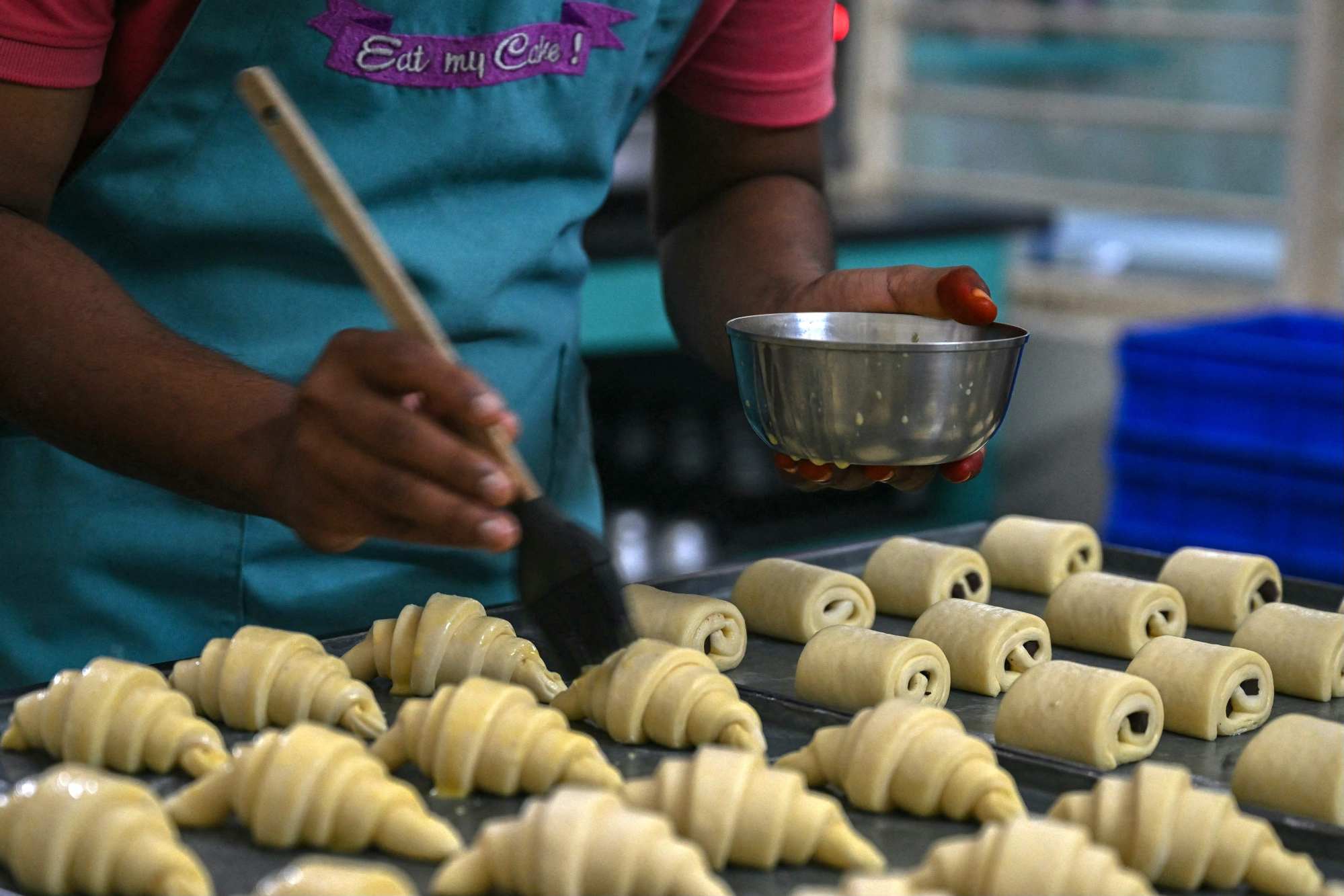“Indians of Pondicherry were considered as French nationals – culturally and legally,” said 96-year-old David Annoussamy, a former judge who served in the French court in the port city, using its colonial-era name.
India’s Modi opens controversial Hindu temple ahead of key elections
India’s Modi opens controversial Hindu temple ahead of key elections
“Nationality wasn’t about colour, it’s about knowing France,” the author said, wearing a traditional Tamil wrap around his waist and speaking from his sprawling home with a tree-lined central courtyard.
“The main thing was to know French”.
Today, New Delhi and Paris celebrate growing ties, with France seeking to boost economic deals including already valuable military contracts with India, the world’s fifth-biggest economy and most populous nation.
The territory on India’s southeastern coast was taken by France in 1674 when the French East India Company set up a trading centre to exploit its rich spices and goods.

France only left in 1954 – seven years after India’s independence from Britain – and it took until 1962 for Paris to formally cede full sovereignty.
The former French trading post has since changed its name to Puducherry, an administrative territory also incorporating other French ex-colonial enclaves including Karaikal, Mahe and Yanam.
Together, 1.25 million people live in the Puducherry territory, according to the last census in 2011, and most speak the Tamil language.
Just 5,000 French nationals live in Puducherry city today, the majority having Indian forebears who took citizenship from France.
Annoussamy took French nationality at the time of the handover, something he is proud of.
India’s first AI-generated film is raising excitement – and doubts
India’s first AI-generated film is raising excitement – and doubts
“Someone born in Paris or someone born in Pondicherry both had the same rights,” he said, speaking in fluent French. He counts Provencal-style bouillabaisse fish soup as his favourite dish.
“It’s a country we’ve adopted, and it’s become our country,” said Franco-Indian fashion designer Vassanty Manet, showing a black and white photo of her father when he served in the French army.
“We’re a population that looks Indian but has a French culture, and that’s what’s so special”.
Manet said she grew up with stories about France that “fed our imagination”, adding her uncle also fought for France during World War II in Algeria.
“We’ve never had any resentment towards France,” she said.

Unlike elsewhere in India, where there have often been wholesale name changes of streets to strip away Britain’s legacy and statues of London’s imperial leaders torn down, echoes of France remain.
A white marble statue of France’s patron saint Joan of Arc – who battled the English in the 15th century, just as the French fought British forces for control of Puducherry in the 19th century – stands tall.
The old French quarter – La Ville Blanche or “White Town” – is a favourite with tourists for its colonial architecture with centuries-old mansions.
Elegant streets are adorned with bougainvillea-laden bungalows, with the aroma of freshly baked baguettes from cafes filling the air.
In India, Delhi’s oldest bookshop retains ‘poetic chaos’ and timeless charm
In India, Delhi’s oldest bookshop retains ‘poetic chaos’ and timeless charm
“They want to try French croissants, baguettes, pain au chocolat, lemon tarts and chocolate tarts,” said, Saloua Sahl, 44, who was drawn from France to set up a bakery.
And, in another sign of French ties, Puducherry is preparing to unveil a 13-metre (42-foot) high replica Eiffel Tower, said Chantal Samuel-David, an elected representative of the French community for southern India.
“The idea is to have a symbol of Franco-Indian friendship, a symbol that everyone here knows, that everyone in the world recognises,” she said.

